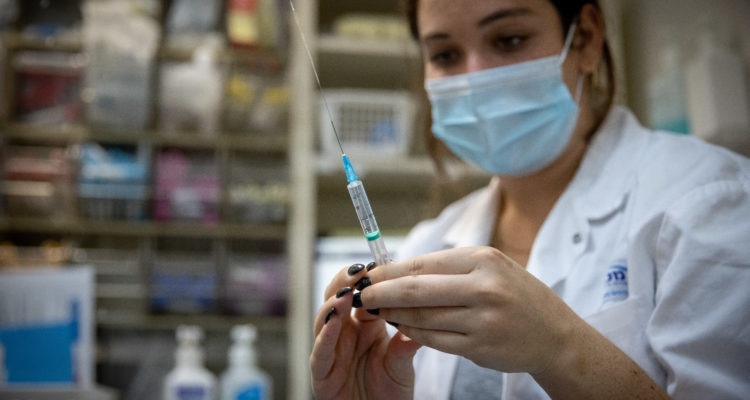
The whistleblower reported her findings to the FDA before it approved the vaccine but apparently no investigation had taken place.
A whistleblower previously employed by one of the clinical research organizations carrying out human trials of Pfizer’s Covid vaccine has told the British Medical Journal that the company falsified data, unblinded patients, employed inadequately trained vaccinators, and was slow to follow up on adverse events during the Phase III trial.
Furthermore, these concerns were made known to the U.S. Food and Drug Administration before it gave approval to the vaccine, but no action was taken by the FDA to follow up on the report.
Brook Jackson, a trained clinical trial auditor with more than 15 years’ experience in clinical research coordination and management, was employed by Ventavia in September 2020, as the company was carrying out Pfizer trials at multiple sites in Texas.
On taking up her role, Jackson found numerous cases of poor laboratory management, data integrity concerns, and most worryingly, patient safety concerns.
She reported her concerns to her superiors. When no action was taken, she turned to the FDA, and was fired by Ventavia the same day, only two weeks into her employment. The reason given: she was “not a good fit.”
Jackson supplied the BMJ — a weekly peer-reviewed medical trade journal published by the trade union the British Medical Association, — with dozens of pieces of evidence, including internal company documents, photos, audio recordings and emails.
One of the recordings is of a meeting between Jackson and two Ventavia executives, one of whom can be heard explaining that the company was unable to quantify the types and number of errors they were finding when reviewing trial paperwork for quality control. “In my mind, it’s something new every day. We know that it’s significant,” one executive says.
Another piece of photographic evidence shows used needles thrown away in a plastic biohazard bag instead of being safely discarded in a sharps box.
Furthermore, an email from ICON, the contract research organization with which Pfizer partnered on the trial, shows ICON reminding Ventavia that it was supposed to be responding to queries from participants within 24 hours.
A printout shows that two participants who reported severe reactions to the jab were not followed up on by telephone within the appropriate time frame. Over 100 other queries were also outstanding after three days.
Jackson called the FDA as well as emailing the agency to list her concerns over the way the trial was carried out. The email details a dozen concerns she had personally witnessed, such as participants in the trial being left in the hallway after their jab instead of being monitored by clinical staff; vaccines not stored at the correct temperature; mislabeled laboratory specimens; protocol deviations left unreported, and – most disturbingly – Ventavia staff being targeted for reporting these and other problems.
According to the BMJ, Pfizer made no mention of the problems at Ventavia when it submitted its report to the FDA in application for emergency authorization use of the vaccine. The FDA approved the vaccine for use the following day.
Two other former employees of Ventavia, who spoke to the BMJ anonymously for fear of reprisals, confirmed Jackson’s complaints were accurate.
One of the employees described conditions during the trial as “helter skelter,” saying: “I’ve never had to do what they were asking me to do, ever. It just seemed like something a little different from normal—the things that were allowed and expected.”
Of the data generated by Ventavia for the Pfizer vaccine trial, she added: “I don’t think it was good clean data. It’s a crazy mess.”
A second employee said that the conditions during the trial were unlike any she had witnessed during 20 years working as a researcher, and that after Jackson was fired, Pfizer was notified by Ventavia of the problems with the trial and that an audit took place.
The recorded meeting between Jackson and the Ventavia executives also reveal that the company was concerned it might be inspected by the FDA and that it would not pass that inspection. “We’re going to get some kind of letter of information at least, when the FDA gets here . . . know it,” one executive said.
In fact, following the authorization of the vaccine, the FDA published a report summarizing its inspections for the trial. It revealed that just nine out of the trial’s 153 sites were inspected.
According to the BMJ, since Jackson reported her concerns to the FDA in September, Pfizer has gone on to hire Ventavia as a research subcontractor on four other vaccine clinical trials. Three of those trials are for the Covid-19 vaccine – for use in children and young adults, for pregnant women, and as a booster dose. The fourth is for a respiratory syncytial virus vaccine.
(World Israel News).